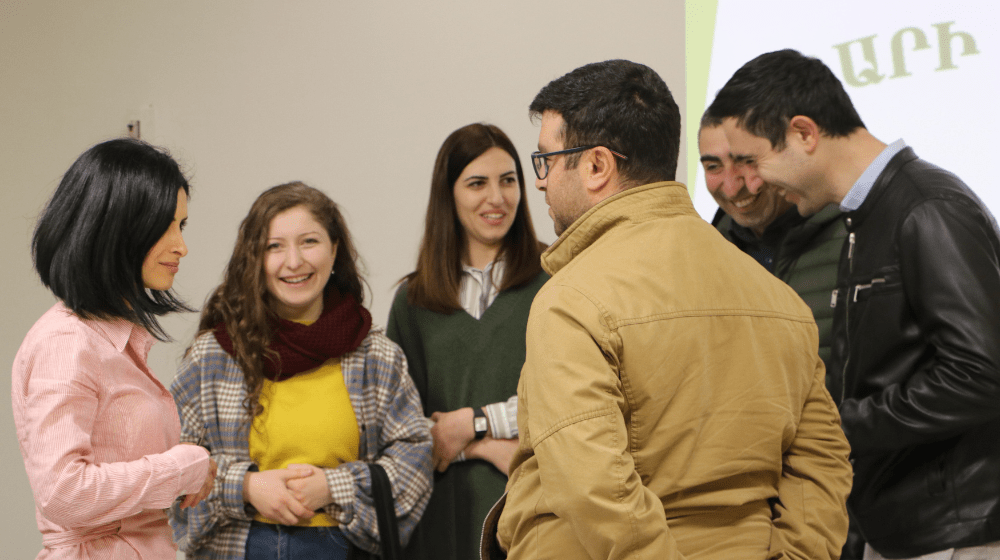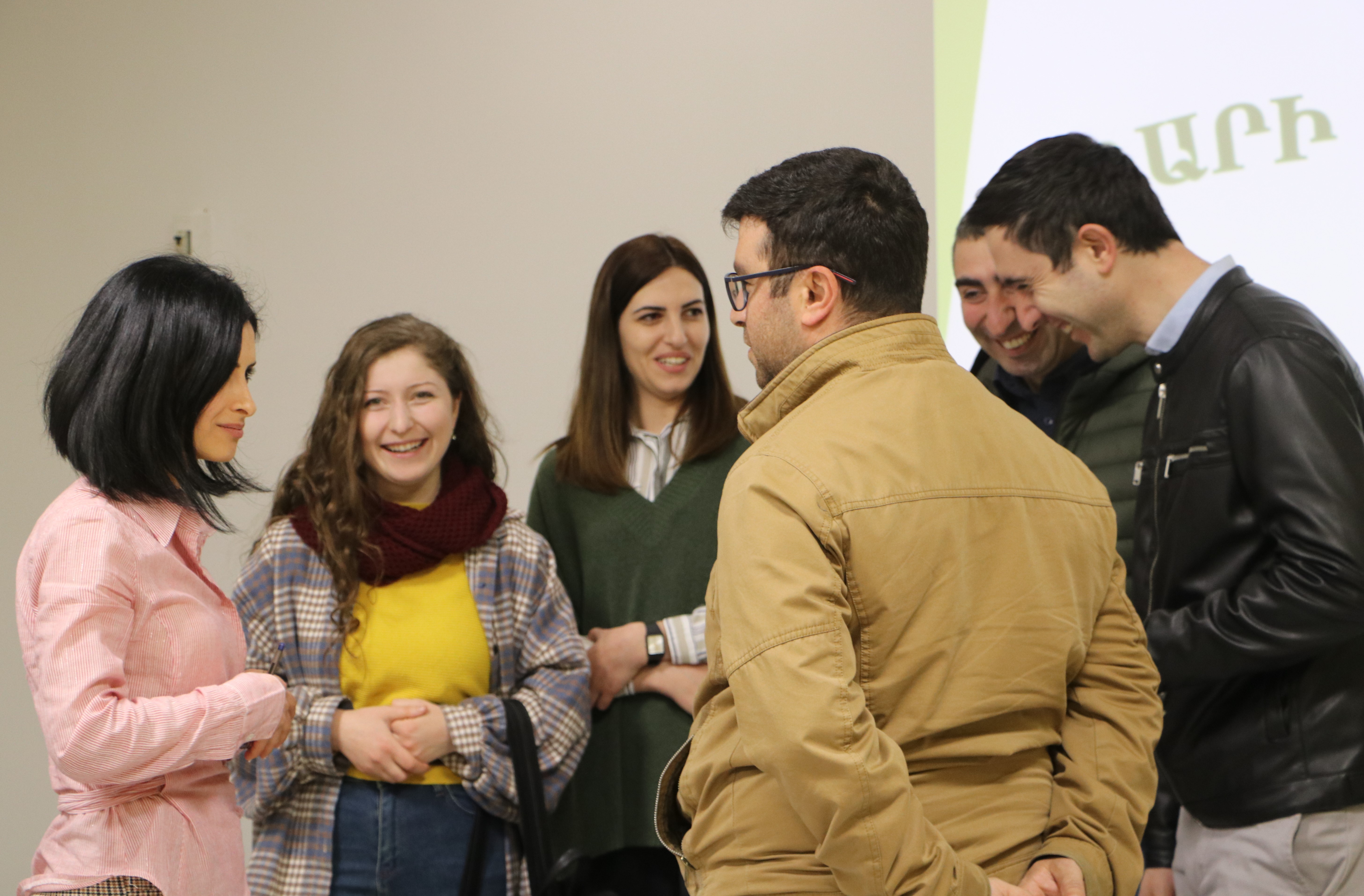
"You should treat your wife the way you treat yourself. You should not abuse her. If the society does not reject the violence, one day your daughter may be subjected to it," said 32-year-old Hovhannes Khachatryan, one of the 16 young women and men participating in the "Caring for Equality" course at the Ijevan Family Corner.
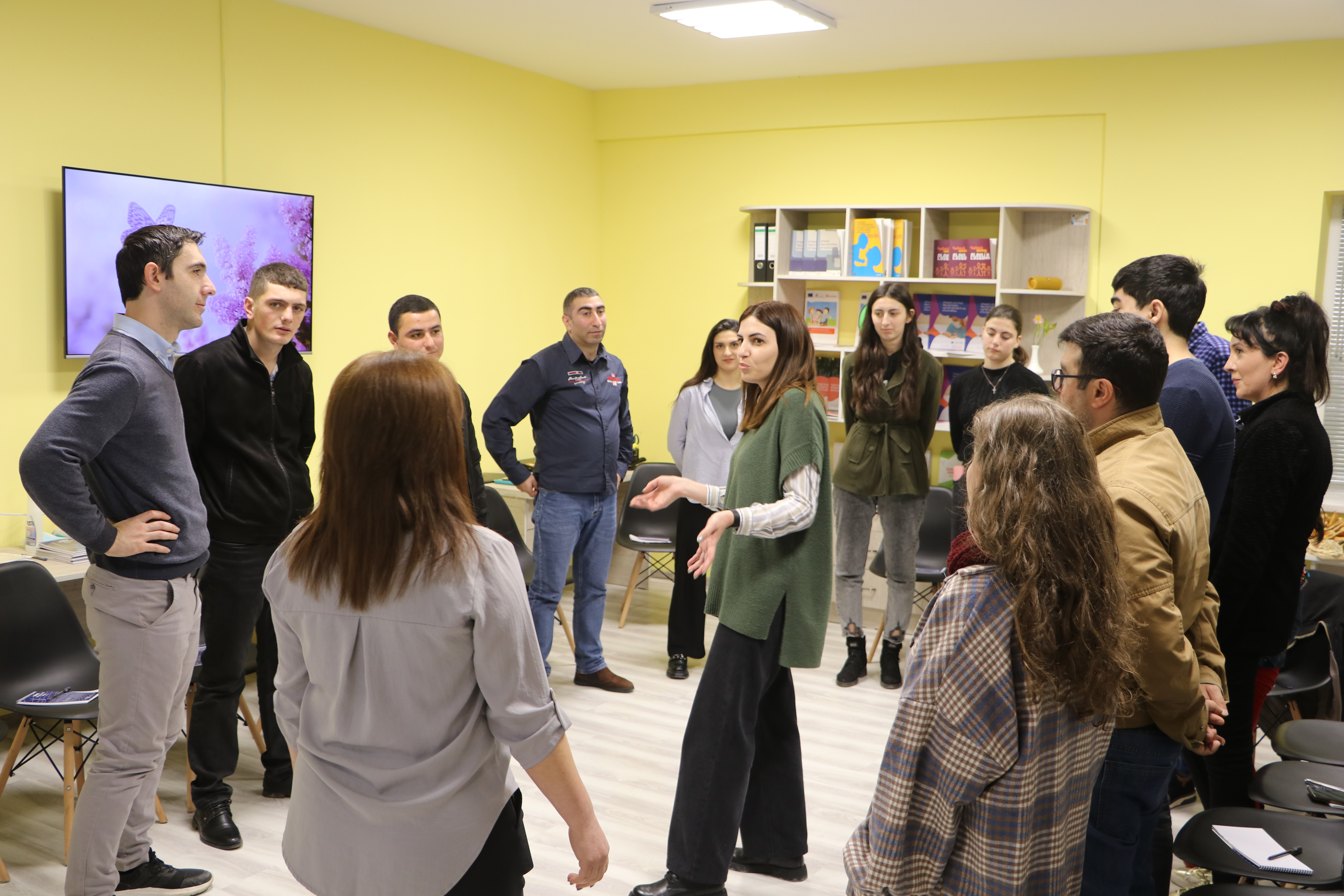
"Caring for Equality" educational course is organized by the Gyumri Youth Initiative Centre and conducted by the social workers of the World Vision Armenia Foundation. During these meetings, young women and men discuss the roles of men and women in the family. The course aims to change stereotypes about these roles and increase men's involvement in childcare and household chores.
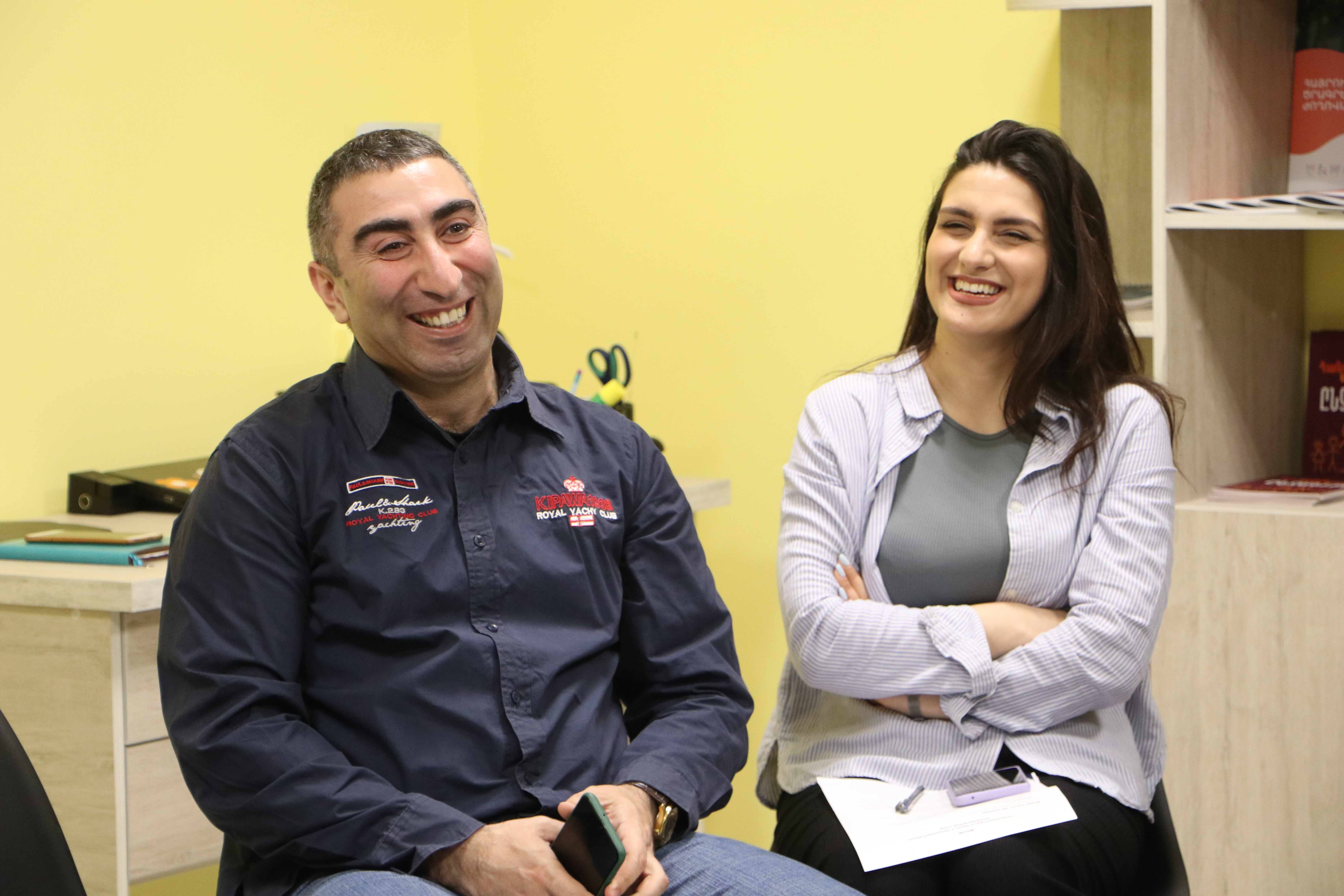
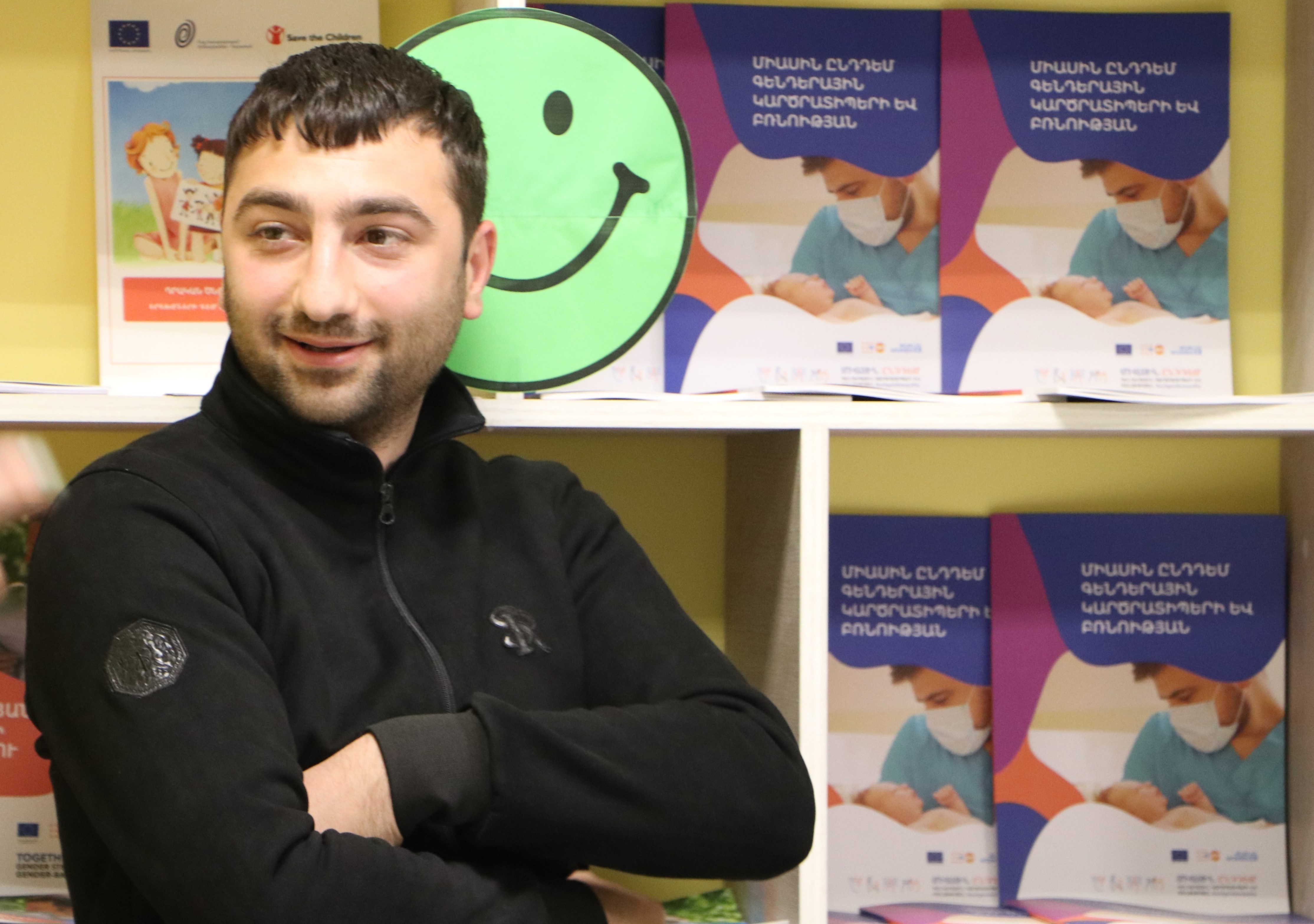
The introductory discussion game revitalized the Family Corner in a few seconds. Women and men started to express their opinions about gender stereotypes by grouping around emojis, symbolizing "yes," "neutral," and "no" responses. Some questions divided the participants into two "armies."
Thus, about ten arguments appeared on the screen, making the participants think, discuss, debate, and, sometimes, change their beliefs about the roles of women and men in a family and gender stereotypes in society.
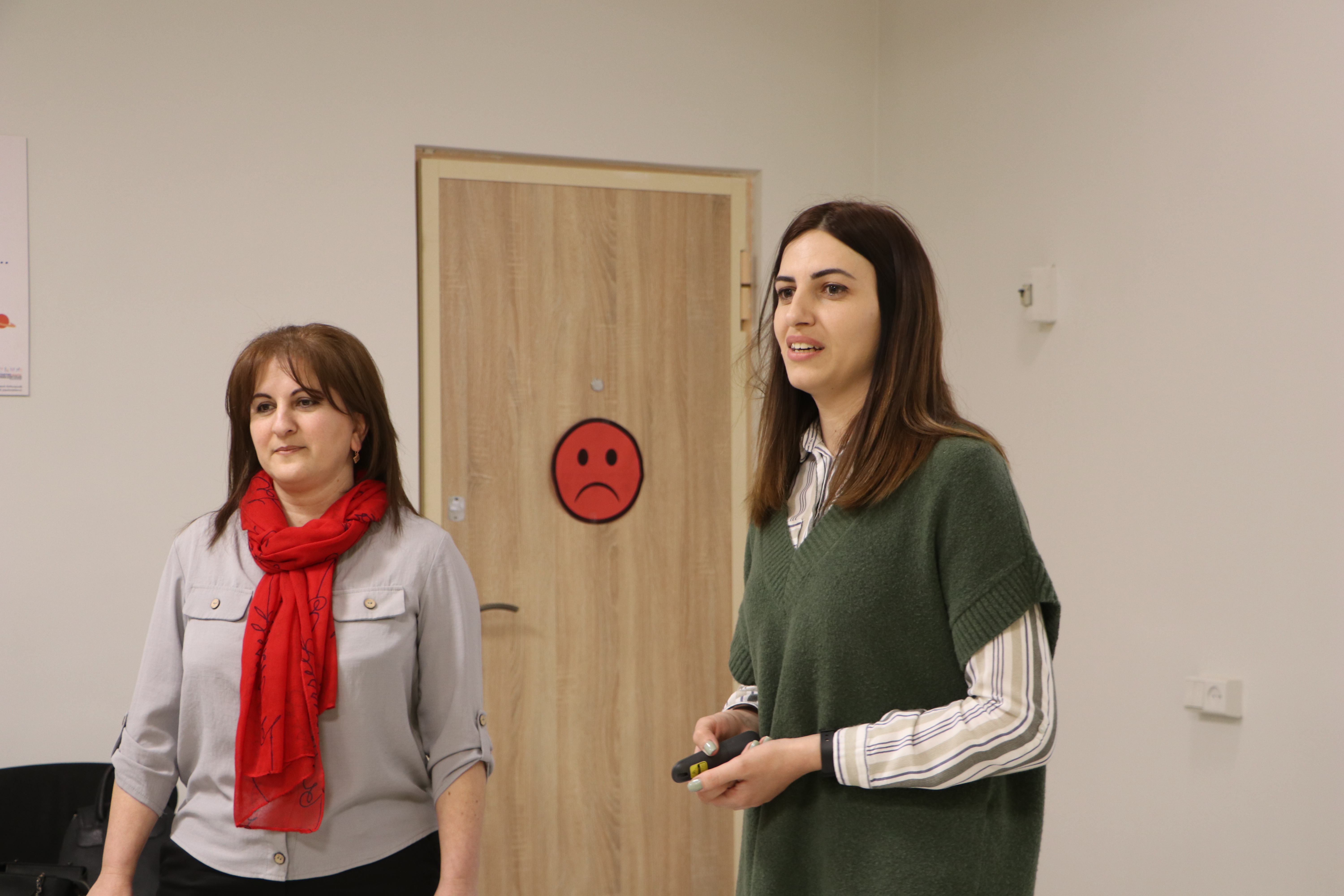
"Our meetings aim to increase valuing the girl child in the family, which will reduce sex-selective abortion. Our ultimate goal is to break gender stereotypes and reach an equal allotment of roles of women and men in the family. Wife and husband should be equally involved in ensuring the family's well-being," says Narine Stepanyan, World Vision Armenia social worker.
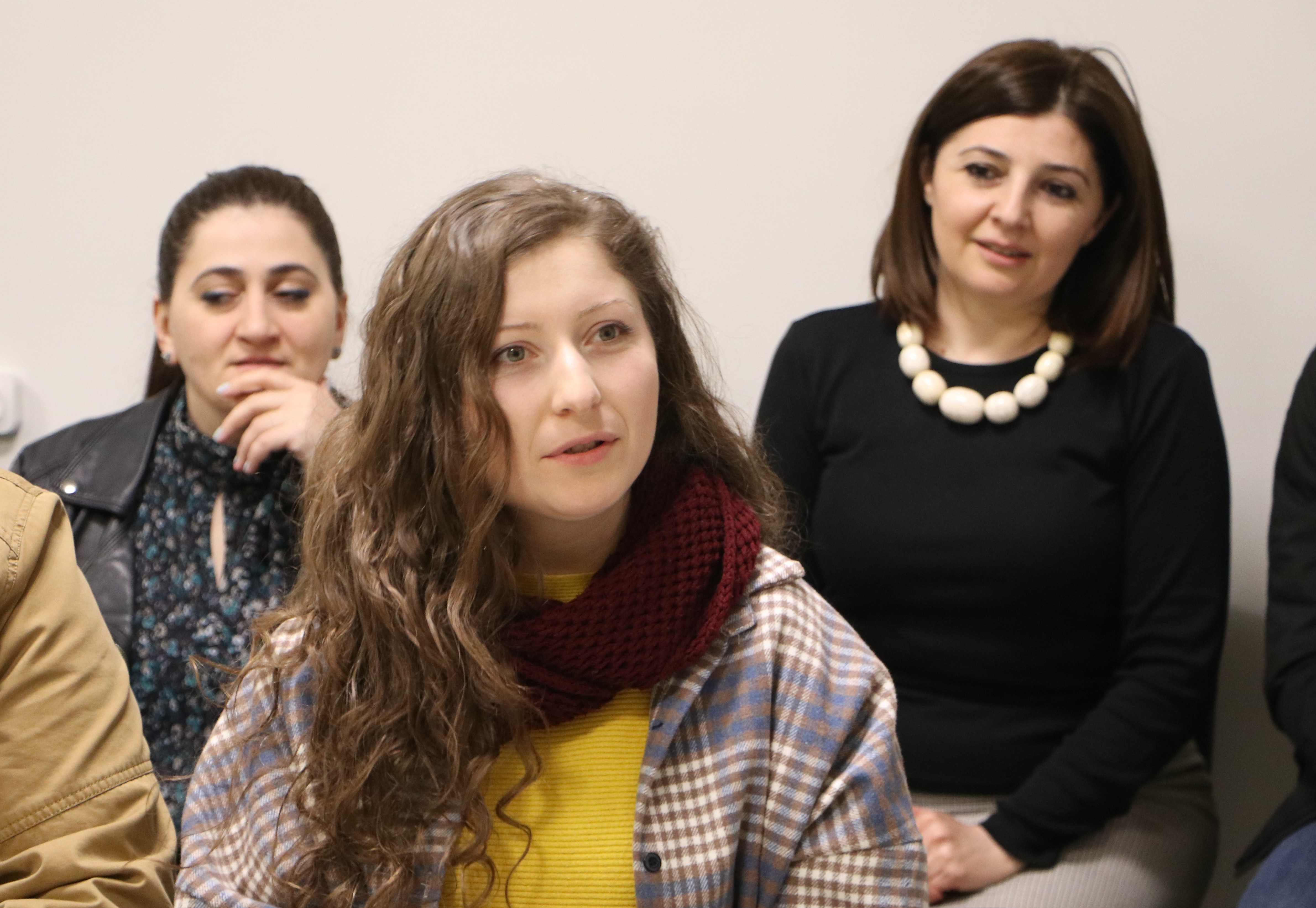
"My former colleague told me that the couple's involvement in this educational course is important because it refers to wife and husband, so we got interested. This is an opportunity to look at our family from the side, to understand how we behave in different situations," 32-year-old Ashkhen Petrosyan noted.
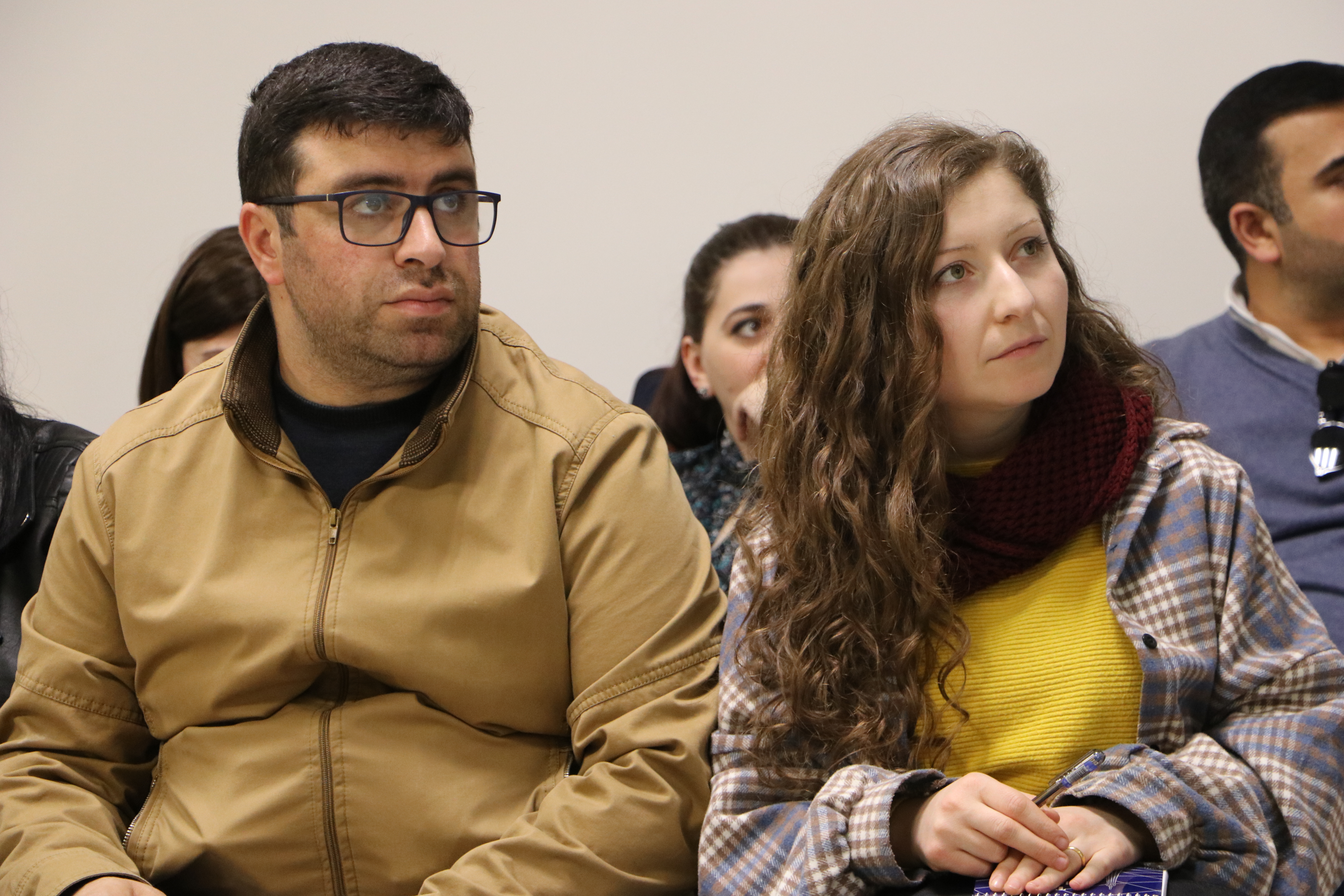
Her husband, 34-year-old Sasun Danielyan, said they do not have a special work division in their household chores. Ashkhen followed her husband's answer with a wide smile and added: "We don't set responsibilities in household chores, and everything ensues automatically. My husband is with me if I am busy with something; he helps, and vice versa."
"We do not have children yet, but I have always enjoyed dealing with children. I have always imagined that I would spend more time with my children," said Sasun.
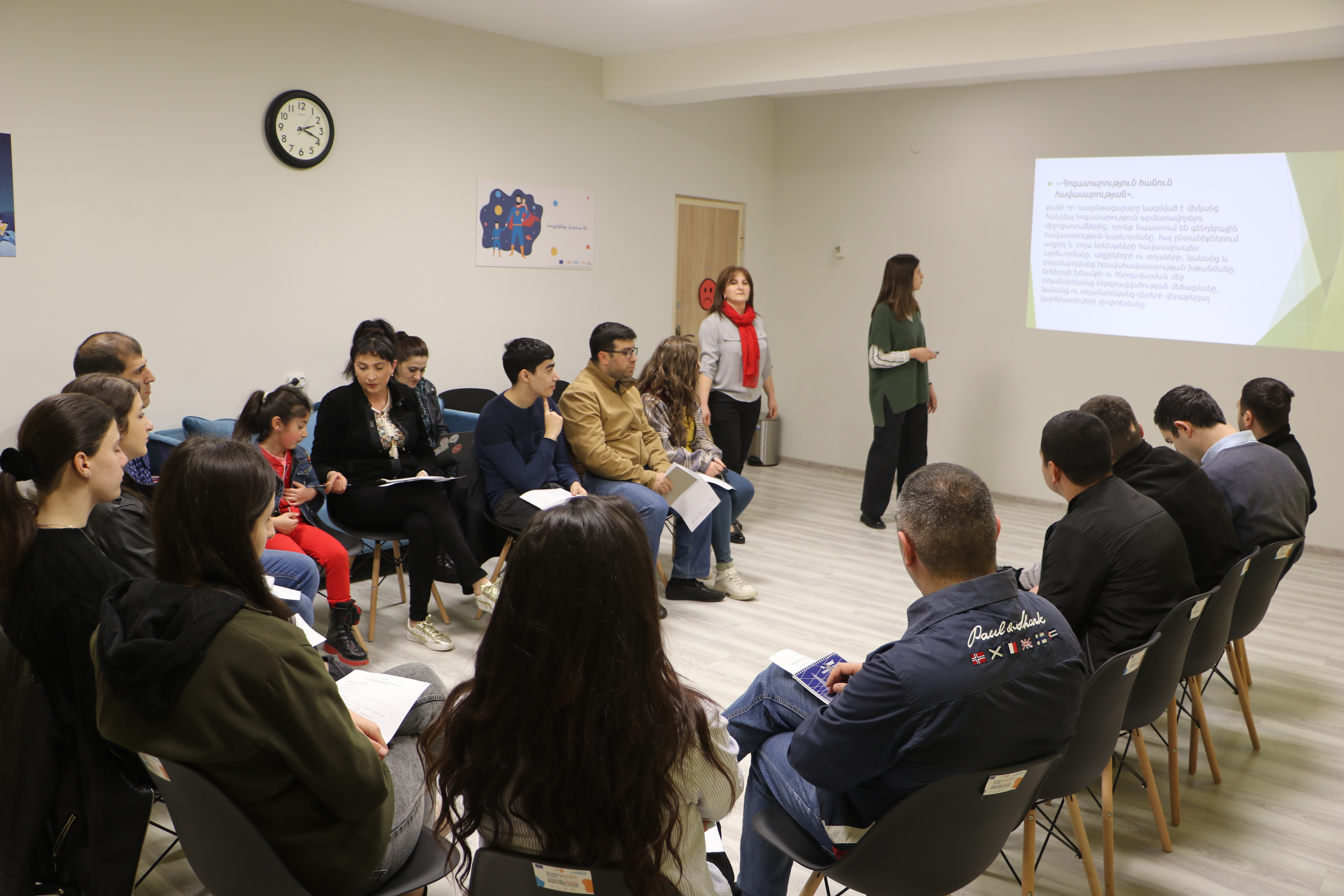
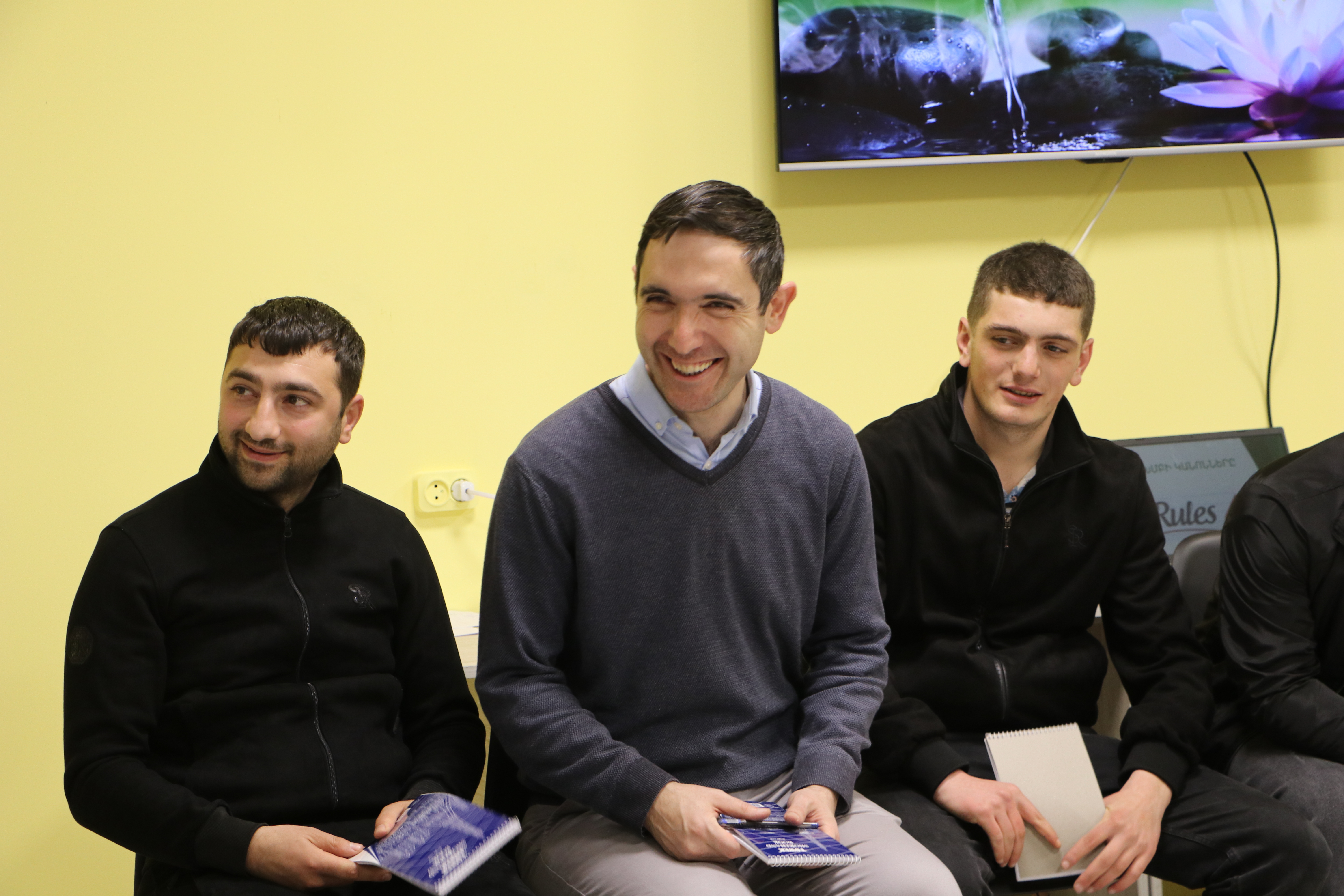
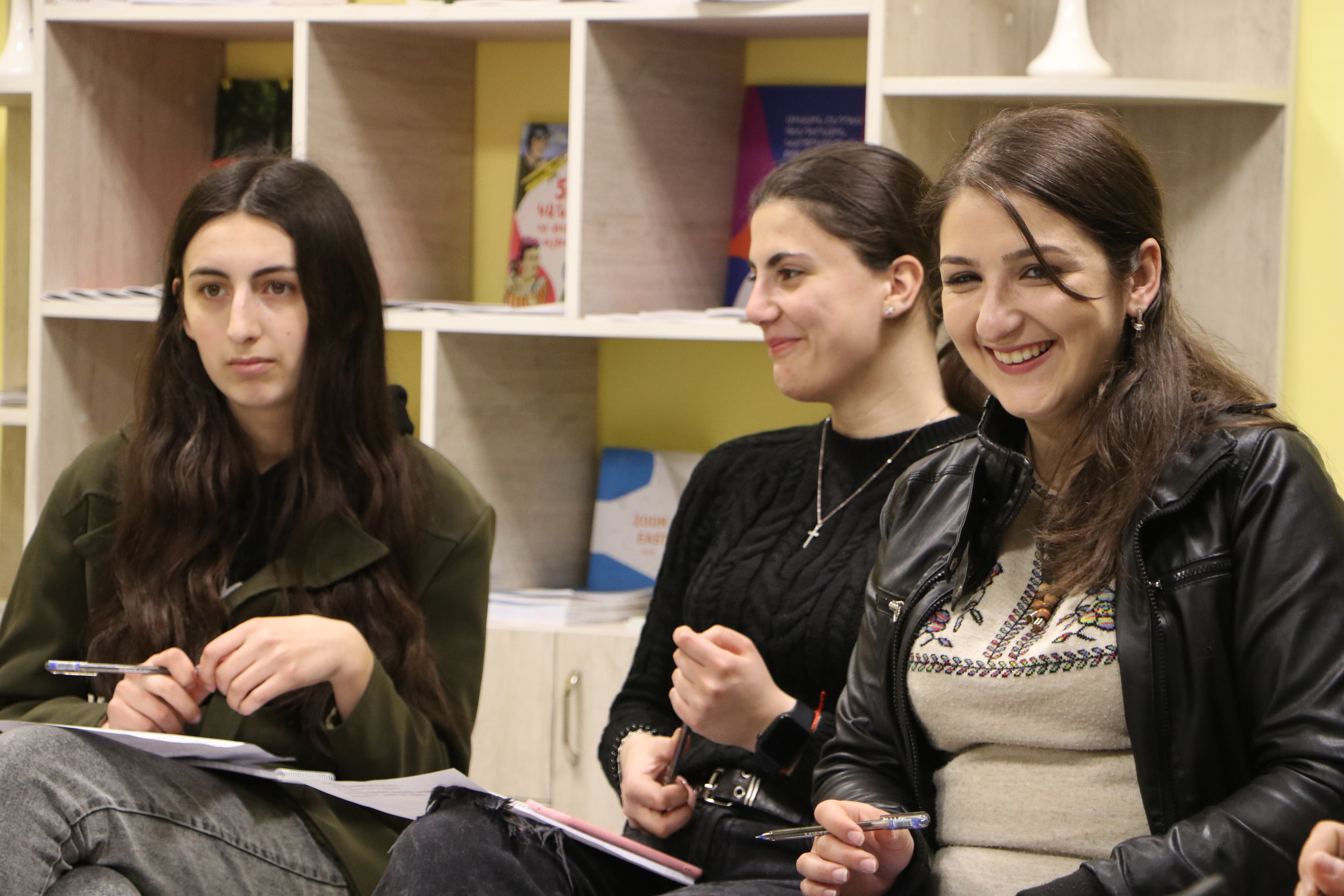
***
The "Caring for Equality" course is conducted in the framework of the "EU 4 Gender Equality: Together against gender stereotypes and gender-based violence" programme, funded by the European Union and implemented jointly by UN Women and UNFPA in 6 EAP countries.
This publication was produced with the financial support of the European Union within the framework of the "EU 4 Gender Equality: Together against gender stereotypes and gender-based violence" programme, implemented jointly by UN Women and UNFPA and funded by the European Union. Its contents are the sole responsibility of UNFPA and UN Women and do not necessarily reflect the views of the European Union.
Mari Mkhitaryan/UNFPA Armenia
Photos by YIC NGO

